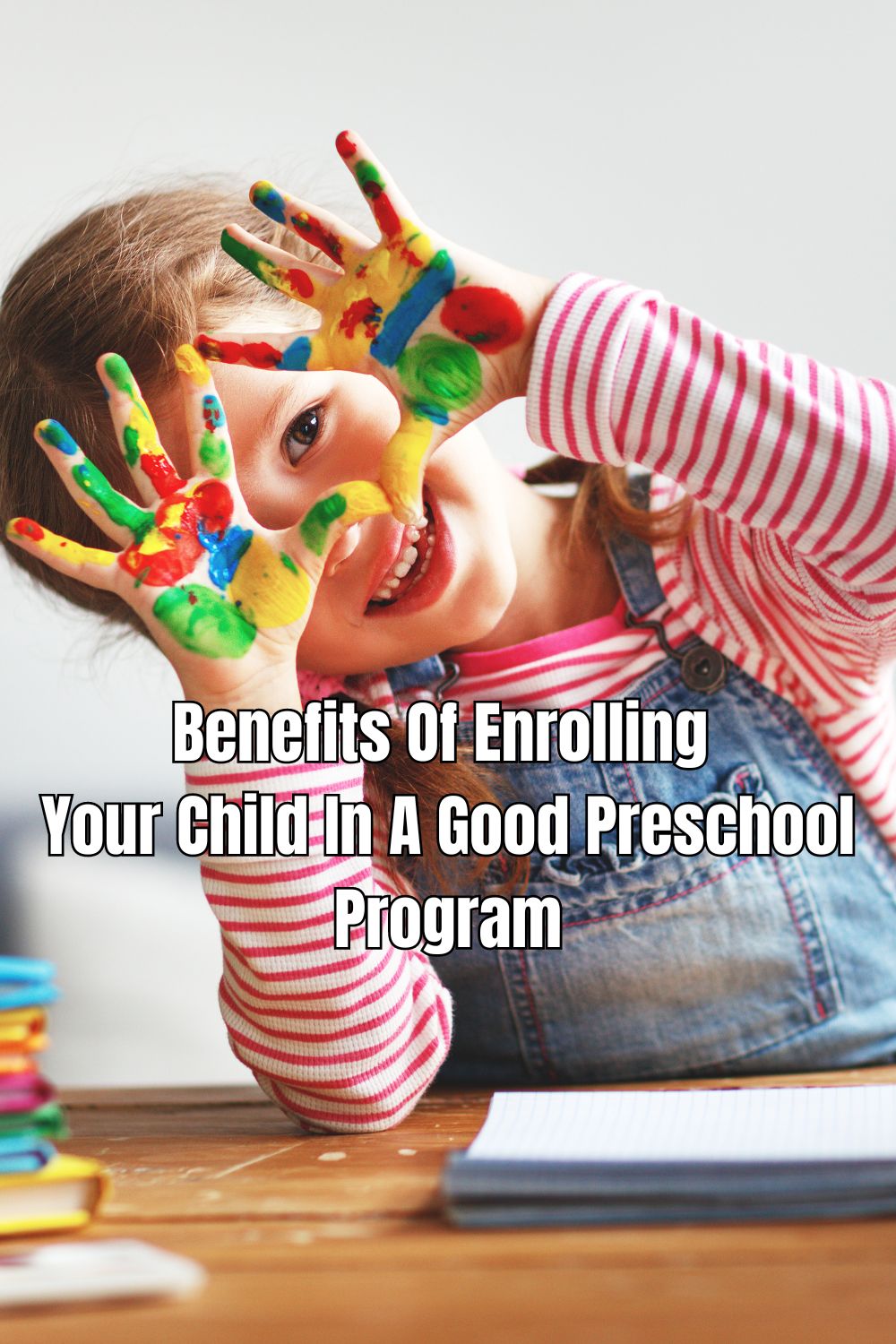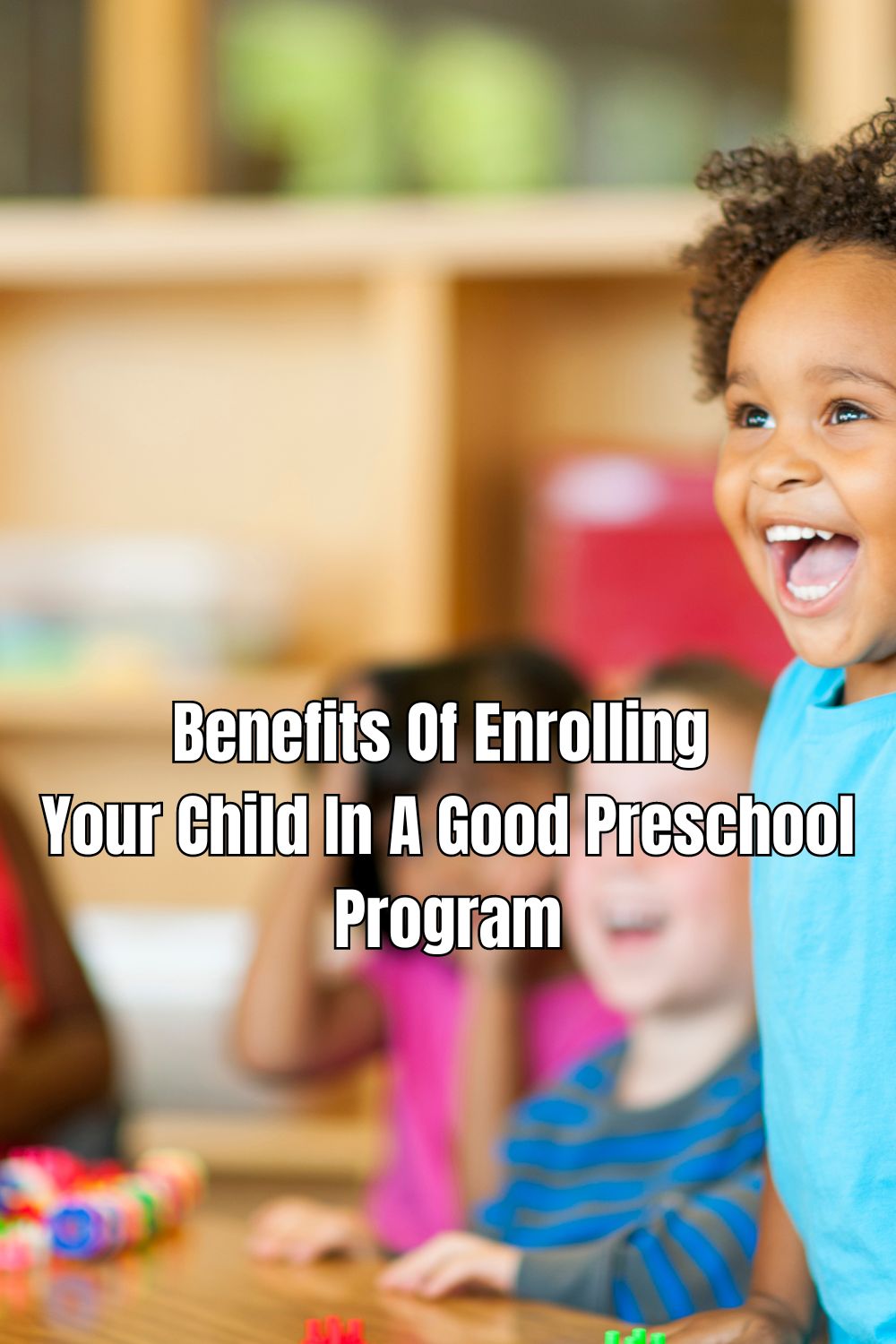Are you looking to enroll your little one in preschool, find out about the benefits Of Enrolling Your Child In A Good Preschool Program
Benefits Of Enrolling Your Child In A Good Preschool Program
Table Of Contents
- Benefits Overview
- Social Development
- Building Academic Foundations
- Fostering Emotional Growth
- Structured Learning Environment
- Boosting Independence and Confidence
- Engaging Activities and Play
- Learning From Qualified Teachers
Benefits Overview
Selecting the appropriate preschool is an essential choice for every parent. A credible preschool program provides numerous benefits that can profoundly impact your child’s early development. These programs offer more than essential childcare, providing a foundation for educational growth and personal development.
The early years of a child’s life are essential for cognitive, emotional, and social development. Enrolling your child in a well-structured preschool program can set the stage for a successful academic journey and a well-balanced life ahead. It’s not just about keeping kids busy; it’s about nurturing their potential and paving the way for a brighter future.
Social Development
Preschool environments are often a child’s first opportunity to socialize in a structured setting. Here, kids learn how to interact with peers, share, and communicate effectively, which can significantly improve their social skills. A study by the National Institutes of Health found that preschool children have better social capabilities, which can benefit them well into their school years. Engaging in different activities with their peers helps kids understand the significance of teamwork and collaboration. These early social experiences are crucial in realizing the benefits of early childhood education. Children also learn about respect and understanding, vital values in a multicultural and diverse society. The environment in preschool allows them to practice these values daily, helping them understand and appreciate differences among people.
Building Academic Foundations
Enrolling your child in a credible preschool lays the foundation for academic success. Preschools introduce fundamental concepts of literacy and numeracy through fun and engaging methods. Early education significantly boosts academic readiness for kindergarten and beyond, providing children with a head start that continues to benefit them throughout their educational journey. Children learn to recognize letters, numbers, and essential words, giving them a head start in reading and mathematics. This early exposure to academics can help mitigate future learning difficulties and promote a lifelong love for education. Moreover, the activities designed for preschoolers often make learning enjoyable and less intimidating, sparking curiosity and eagerness to explore new concepts.
Fostering Emotional Growth
Preschools also play a crucial role in emotional development. Children learn to manage their emotions, cope with new experiences, and develop a sense of empathy. This emotional maturity can positively influence their overall mental well-being. In preschool environments, children have the opportunity to encounter and handle a variety of emotions with the support of skilled teachers. Children will inherit the ability to comprehend and control emotions as adults. Preschool programs often include activities that teach children to express themselves in healthy ways, contributing to their emotional intelligence. For example, storytelling sessions and role-playing games help children explore different emotions and develop coping mechanisms for various situations.
Structured Learning Environment
A structured learning environment is essential for young children. Credible preschools offer a balanced schedule with various activities to promote learning and development. This structured approach helps create a stable routine, which benefits children’s sense of security. Knowing what to expect from their day provides comfort and allows children to focus on learning. Routine and structure give children a sense of predictability, which is crucial for their emotional stability and understanding. A well-planned preschool curriculum ensures children experience educational and recreational activities. This balance keeps them engaged while teaching them time management and the importance of following a schedule.
Boosting Independence and Confidence
Preschool encourages independence by allowing children to make choices and decisions in a safe setting. These experiences build self-esteem and prepare them for future academic challenges. The sense of achievement from completing small tasks—like tidying up after an activity or helping a peer—significantly boosts their confidence. Children gain confidence through small successes and learn to tackle new challenges fearlessly. This foundation of independence and self-reliance serves them well in all future endeavors. Furthermore, the varied activities and tasks at preschool help children discover their interests and strengths, further boosting their self-confidence and sense of self-worth.
Engaging Activities and Play
Play is a critical component of early childhood education. Children explore their world, develop problem-solving skills, and stimulate creativity through play. Credible preschools incorporate various play-based learning activities that are crucial for cognitive development. Play-based learning also helps children understand complex concepts in an enjoyable and relatable way. These activities are created to combine education with enjoyment, merging play with learning. This approach makes education feel like a natural part of a child’s daily routine, encouraging them to engage and learn actively. Activities like building blocks or interactive storytelling sessions are enjoyable and enrich their cognitive abilities by expanding their understanding of different subjects.
Learning From Qualified Teachers
One significant advantage of a credible preschool is its staffed by qualified educators who understand early childhood development. Qualified teachers create an enriching environment where children can thrive academically, socially, and emotionally. Their knowledge enables them to identify the individual requirements of every child and customize the educational experience accordingly. Knowledgeable teachers develop individualized learning strategies to align with students’ unique requirements and skills. Their guidance and support are pivotal in shaping a child’s early education journey. From teaching fundamental skills to providing emotional support, qualified educators play a versatile role in a child’s life, impacting their development.


Leave A Reply!